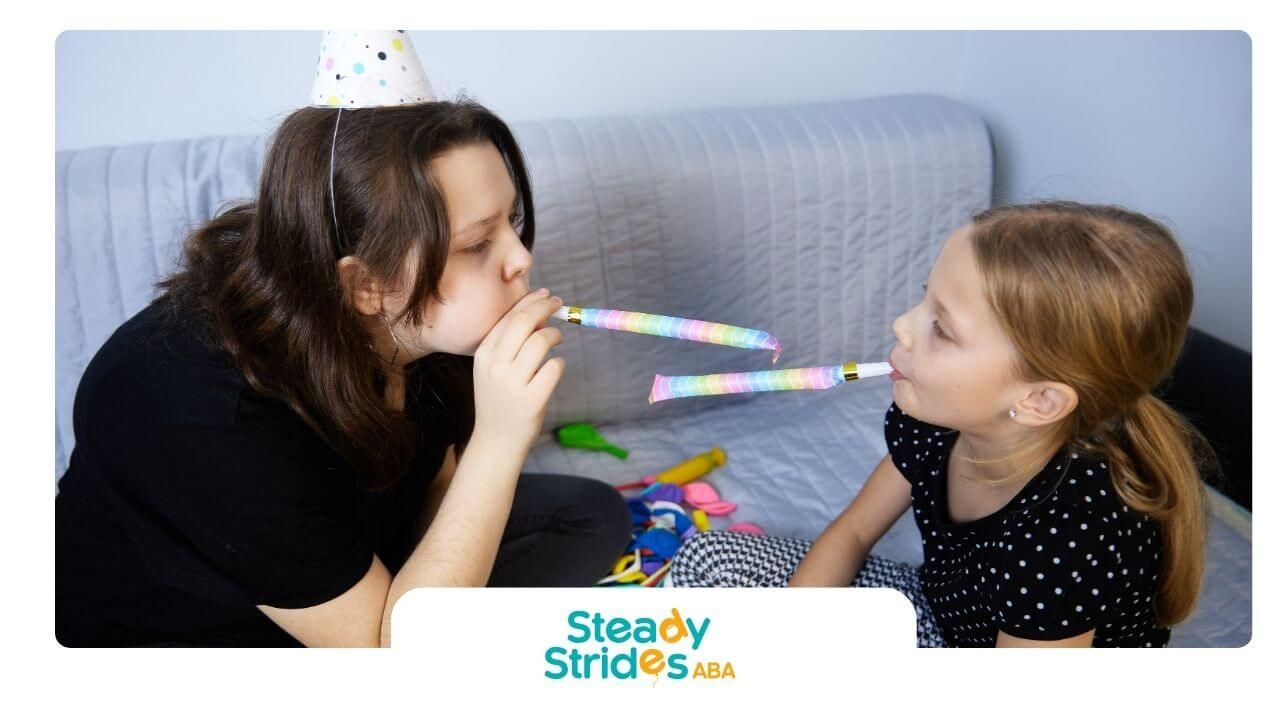Autism Spectrum Disorder (ASD) is a complex neurodevelopmental condition that affects communication, behavior, and social interactions. One of the most frequently asked questions by families is whether autism can run in families. This blog post will explore the genetic factors involved in autism, what research says about its hereditary nature, and what it means for families.
Can Autism Run in Families?
Yes, autism can run in families. Research has shown that genetics play a significant role in the likelihood of developing autism. While the exact cause of autism is not fully understood, it is widely accepted that both genetic and environmental factors contribute to the condition.
The Role of Genetics in Autism
Genetics are believed to be a major factor in the development of autism. Several studies have shown that autism tends to run in families, indicating a hereditary component.
Twin Studies and Family Studies
Twin studies have been instrumental in understanding the genetic link to autism. These studies compare the prevalence of autism in identical twins (who share 100% of their genes) to fraternal twins (who share 50% of their genes).
If one identical twin has autism, the other twin has a higher likelihood of also having autism compared to fraternal twins. Family studies have also shown that siblings of autistic individuals are at a higher risk of developing autism compared to the general population.
Genetic Mutations and Variations
Research has identified several genetic mutations and variations that are associated with autism. Some of these genetic changes occur spontaneously, while others are inherited. These genetic factors can affect brain development and function, contributing to the characteristics seen in autism.
Environmental Factors and Autism
While genetics play a crucial role, environmental factors are also important in the development of autism. These factors can interact with genetic predispositions, increasing the risk of autism.
Prenatal and Perinatal Factors
Certain prenatal and perinatal factors have been associated with an increased risk of autism. These include advanced parental age at the time of conception, maternal illness during pregnancy, complications during birth, and exposure to certain environmental toxins.
Early Childhood Environment
The early childhood environment can also influence the development of autism. Factors such as early childhood infections, exposure to heavy metals, and severe malnutrition may contribute to the risk of developing autism.
What This Means for Families
Understanding the genetic and environmental factors associated with autism can help families make informed decisions and seek appropriate support and interventions.
Genetic Counseling
Families with a history of autism may benefit from genetic counseling. Genetic counselors can provide information about the likelihood of autism in future pregnancies, discuss potential genetic testing options, and offer guidance on early intervention strategies.
Early Intervention and Support
Early intervention is crucial for children with autism. Identifying the signs of autism early and seeking appropriate support can significantly improve outcomes. Programs like ABA therapy, speech therapy, and occupational therapy can help children develop essential skills and reach their full potential.
Conclusion
Autism can indeed run in families, with genetics playing a significant role in its development. Understanding the hereditary aspects of autism can help families make informed decisions and seek early interventions that can improve outcomes.
At Steady Strides ABA, we are committed to supporting families with comprehensive ABA therapy services tailored to meet the unique needs of each child. Contact us today to learn more about how we can help your family.
FAQs
Is autism always inherited?
Autism is not always inherited. While genetics play a significant role, not all cases of autism are due to inherited genetic factors. Spontaneous genetic mutations and environmental factors can also contribute to the development of autism.
What is the likelihood of having another child with autism if one child is already diagnosed?
The likelihood of having another child with autism varies depending on several factors, including the presence of genetic mutations and family history. On average, the risk is higher than in the general population but varies from family to family.
Can genetic testing determine if my child will have autism?
Currently, there is no single genetic test that can determine if a child will have autism. However, genetic testing can identify certain mutations and variations associated with autism, providing useful information for diagnosis and intervention.













